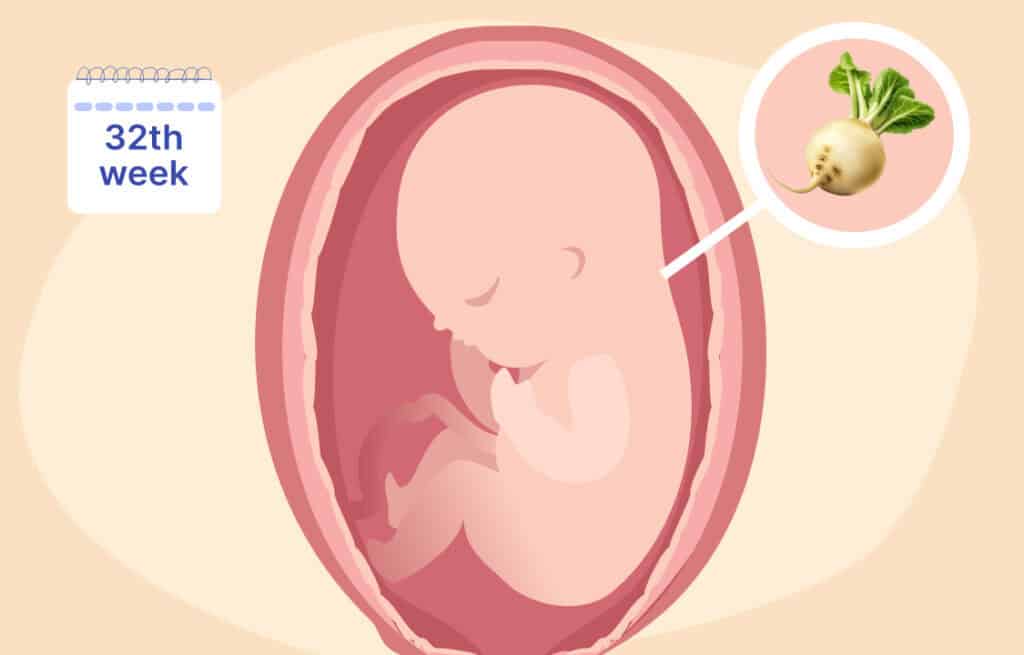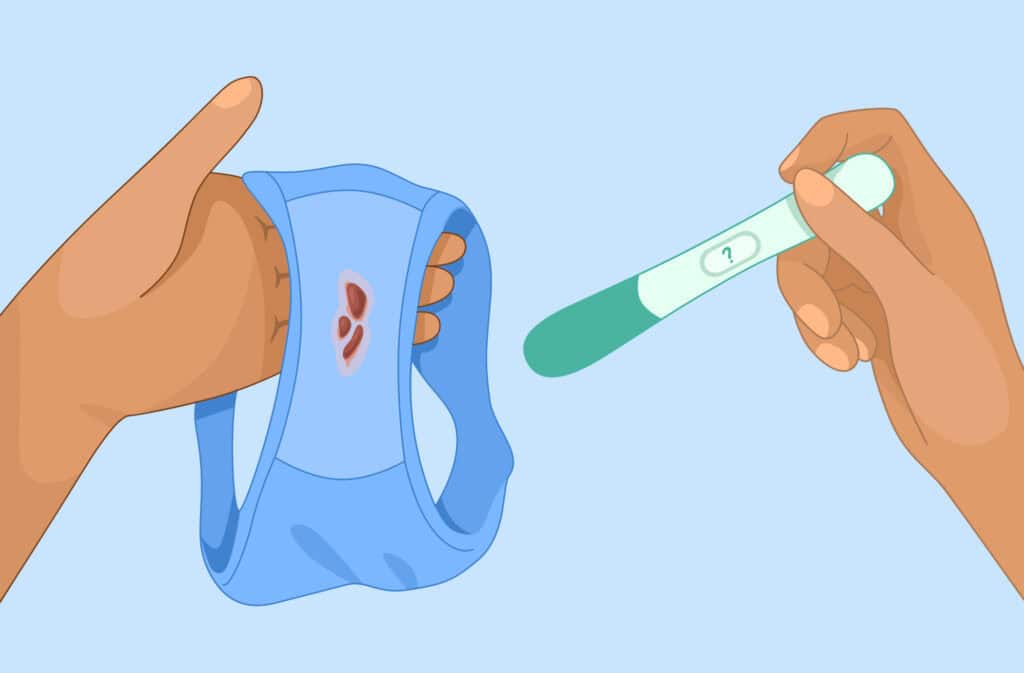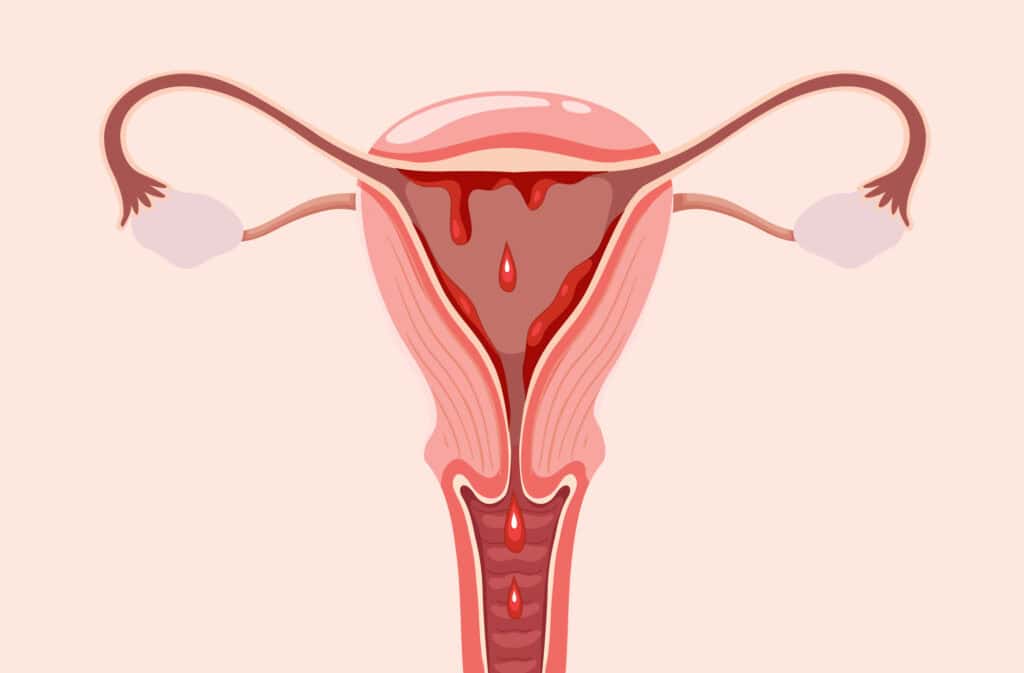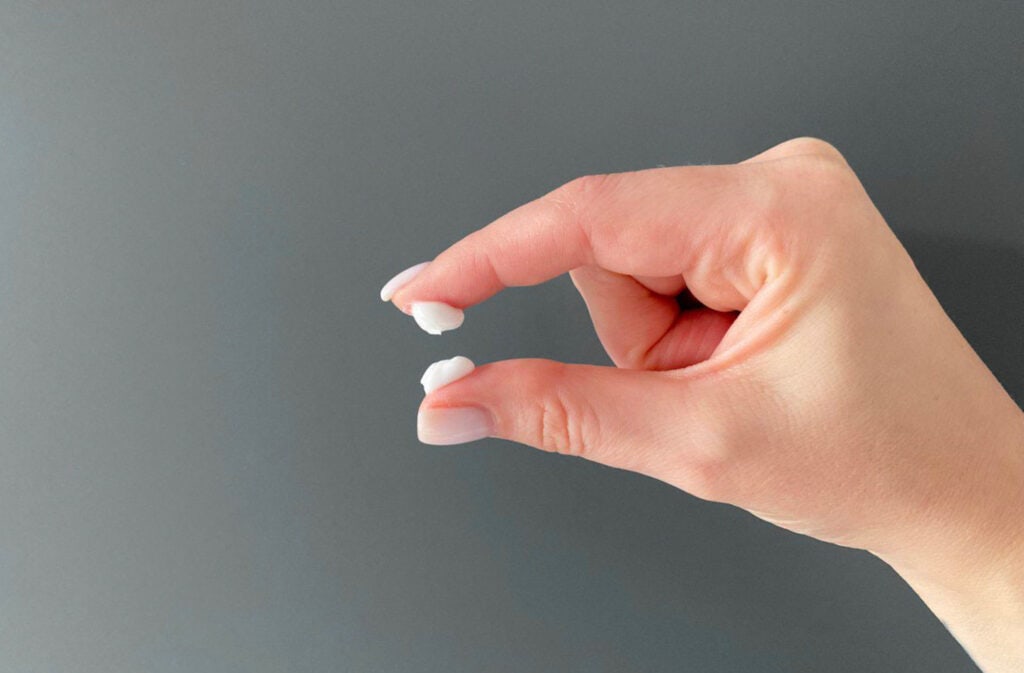Femia > Health Library > Pregnancy > Pregnancy week by week > 32 Weeks pregnant: Baby’s growth, your body, and what to watch for
32 Weeks pregnant: Baby’s growth, your body, and what to watch for

- Updated Feb 14, 2025
- Published
CRAFTED BY HUMAN
Crafted by human At Femia, we provide accurate and up-to-date information at every stage of your journey, from trying to conceive, pregnancy and postnatal support. All content is created by a real person based on in-depth research and own professional experience. Femia ensures that you will receive expert advice, strict accuracy and a personalized approach from our authors/medical experts. Learn more about our editorial policy.
FACT CHECKED
Fact checked At Femia Health, we maintain the highest standards of editorial excellence in delivering content focused on helping you conceive, guiding you through pregnancy, and supporting you postpartum. Explore our content review principles to learn how we ensure the accuracy and quality of our health and lifestyle tips for every stage of your journey.
At 32 weeks pregnant, your baby is focusing on growth and final touches like lung maturity and brain development. By this week, your baby weighs about 1.7 kilograms and measures approximately 16-17 inches, about the size of a squash. For you, it’s a time to manage symptoms and prepare for labor, including knowing the signs of preterm labor.
You’re now 32 weeks pregnant, nearing the final stretch of your pregnancy! Your baby is continuing to grow, gaining weight, and preparing for life outside the womb. For moms, the symptoms may intensify, and it’s crucial to watch for signs of preterm labor. Here’s everything you need to know about week 32 pregnancy, from baby development to self-care and preparing for the weeks ahead.
Personalized meal plans, symptom tracking, and more with the Femia
Pregnancy symptoms at 32 weeks
At 32 weeks pregnant, your body and baby continue to change, and you may experience a range of symptoms. What should I be feeling at 32 weeks pregnant? Here’s a breakdown of some of the most common signs and symptoms you may notice at this stage:
Lightning crotch
Sharp, sudden pelvic pain, known as “lightning crotch,” is common late in pregnancy. It’s caused by your baby’s head pressing on nerves in your pelvis. Though painful, it’s usually harmless and short-lived.
Bleeding gums
Many women experience bleeding gums due to hormonal changes, especially during the third trimester. Brush gently, floss, and use mouthwash to maintain oral health. Regular dental visits are important to manage any gum issues during pregnancy.
Swollen hands and face
Swelling is common, but excessive swelling in your hands, face, or around your eyes can signal preeclampsia. Monitor swelling levels, stay active, and drink water to manage mild swelling. If swelling becomes severe, contact your healthcare provider immediately.
Itching skin
Itching occurs as your skin stretches. Use moisturizers and consider warm oatmeal baths. Severe itching, especially on hands or feet, might indicate a liver issue, so consult your provider if it’s persistent or accompanied by a rash.
Varicose veins
Pregnancy increases the risk of varicose veins due to added pressure on blood vessels. Staying active, avoiding standing or sitting for long periods, and elevating your legs can help minimize discomfort and prevent it from worsening.
Appetite changes
Your appetite may decrease due to your baby crowding your internal organs. Eat smaller, frequent meals with balanced nutrients to maintain your energy levels during the final trimester.
Braxton Hicks contractions vs true labor
| Aspect | Braxton Hicks Contractions | True Labor |
|---|---|---|
| Frequency | Irregular, not progressively closer together | Regular intervals, getting closer together |
| Intensity | Weak, often described as mild discomfort | Increases in strength over time |
| Duration | Short, usually lasting less than 30 seconds | Longer, lasting 30-70 seconds per contraction |
| Location of Pain | Felt mainly in the front of the abdomen | Starts in the back and radiates to the front |
| Effect of Movement | Stops or decreases with activity or a change in position | Continues regardless of movement or position changes |
| Cervical Changes | Does not cause dilation or thinning of the cervix | Causes the cervix to dilate and thin out (effacement) |
Symptoms not to ignore at 32 weeks
- Signs of preterm labor. If you experience regular, painful contractions, lower back pain, or a sensation of pelvic pressure, it could be a sign of preterm labor. Preterm labor occurs when contractions lead to cervical changes before 37 weeks. This could result in premature birth, which can lead to serious health issues for both you and your baby. Contact your healthcare provider immediately if you notice any of these symptoms.
- Severe swelling. While mild swelling in the feet and ankles is common, severe swelling, especially in your face or hands, can be a sign of preeclampsia. Preeclampsia is a serious pregnancy complication that causes high blood pressure and can affect organ function. It can lead to complications such as stroke or organ failure if not treated. Seek medical help immediately if you experience severe swelling along with other symptoms like headaches, vision changes, or upper abdominal pain.
- Reduced baby movements. At this stage, you should be able to feel your baby move regularly. A noticeable decrease in movement could signal a potential issue, such as fetal distress or a lack of oxygen. If you notice fewer than usual or no movements, contact your doctor immediately for further evaluation. Monitoring baby movements is an important part of ensuring your baby’s health during pregnancy.
Your body at 32 weeks pregnant
Your bump is now prominent, and your baby’s movements may feel stronger and more coordinated. At this stage of pregnancy, you might feel a mix of excitement and fatigue as your body works hard to support your growing baby.
As your body continues to change, it’s normal to experience more physical discomfort. For many women, this includes more swelling in the feet and ankles due to increased blood volume. You may also notice more stretching or itching of the skin around your belly as it expands. To alleviate discomfort, applying moisturizers or oils can help soothe your skin.
32 Weeks pregnant in months
You’re officially 8 months pregnant, with about 8 weeks to go until your due date.
32-Week pregnant belly
Your uterus has grown significantly, which means your organs are being pushed upward and outward, possibly causing discomfort or difficulty with breathing. The additional weight of your growing belly might also contribute to back pain and pelvic pressure. Your belly is rounder and heavier, and you may notice more stretching or itching of your skin. Moisturizers can help alleviate discomfort.
Personalized meal plans, symptom tracking, and more with the Femia
Baby development at 32 weeks of pregnancy
At 32 weeks, your baby is rapidly developing in several crucial ways. Their lungs are nearly fully developed, and they are practicing their breathing movements by inhaling amniotic fluid. This process helps prepare their lungs for breathing outside the womb. The brain and nervous system are continuing to mature, and your baby is becoming more responsive to external stimuli like light, sound, and touch. You may notice more distinct movements and your baby may even react to changes in your voice or music.
32-Week baby size and position
By 32 weeks, your baby weighs around 1.7 kilograms (3.75 pounds) and measures about 16-17 inches long, which is roughly the size of a jicama. This week, they are continuing to gain weight and develop fat under their skin, helping them look less wrinkled. At this stage, many babies start to settle into a head-down position in preparation for birth, although some may still be in different positions. It’s not unusual for babies to move around until closer to the due date.
32-Week ultrasound
A 32-week ultrasound provides detailed insights into your baby’s growth, position, and overall health. You might see their facial expressions, active movements, or even thumb-sucking.
32-Week preemie
Is your baby fully developed at 32 weeks? A baby born at 32 weeks is considered very premature but has an excellent 95-98% survival rate with modern neonatal care.
Development and care:
- Lungs: Developing but may need breathing support.
- Feeding: Likely through a feeding tube until sucking reflexes mature.
- NICU support: Includes temperature regulation in an incubator and close monitoring. Babies born at 32 weeks usually need to stay in the NICU for 4 to 6 weeks, depending on their health and development.
Most 32-week preemies thrive with proper medical care and catch up developmentally with their peers by early childhood.
Tests to expect at 32 weeks pregnant
Your healthcare provider will focus on monitoring your health and your baby’s progress with these routine tests:
- Blood pressure check: Detects signs of preeclampsia or hypertension.
- Fetal heartbeat and movements: Your provider will check your baby’s activity and heartbeat.
- Urine test: Screens for protein (preeclampsia) and glucose (gestational diabetes).
- Fundal height measurement: Ensures your uterus is growing appropriately.
- Ultrasound (if needed): May be used to monitor growth, baby position, or amniotic fluid levels.
👉Find out more:
33 Weeks pregnant: Fetal milestones, labor prep, and decision-making
34 Weeks pregnant: Baby development, symptoms, and preterm labor signs
Health tips and self-care at 32 weeks pregnant
Stay active
Gentle exercises such as walking or practicing yoga are great ways to stay active during your pregnancy. These activities help with circulation, reduce the risk of swelling, and can alleviate back pain caused by the growing weight of your baby. Aim for 30 minutes of moderate activity each day, but always listen to your body and rest if you feel tired or uncomfortable.
Hydrate and rest
Staying hydrated is essential during pregnancy, especially as your body is working harder to support your baby. Drink at least 8-10 glasses of water each day to help reduce swelling, maintain amniotic fluid levels, and support overall health. Additionally, prioritize rest whenever you can. Taking regular breaks and lying on your left side can improve circulation and minimize swelling in your legs and feet.
Track baby movements
While routine kick counting is no longer recommended by the American College of Obstetricians and Gynecologists (ACOG) as the primary method for fetal monitoring, it’s important to stay aware of your baby’s movement patterns. A noticeable reduction in movement might indicate a problem, and if you notice less activity than usual, contact your healthcare provider promptly. Your provider may suggest monitoring movements or may perform additional checks to ensure your baby is healthy.
Prepare for labor
Now is the perfect time to start preparing for labor. Reviewing breathing techniques, practicing relaxation methods, and discussing your birth plan with your healthcare provider will help you feel more in control and confident. Think about pain relief options, positions for labor, and any preferences you have for delivery. Preparing mentally and physically can make a huge difference when labor begins.
Questions from the Femia community
What questions should I ask my partner before giving birth?
Discuss preferences for the birthing experience, such as who will be in the delivery room and how involved they want to be during labor. Address post-birth responsibilities, like who will handle nighttime feedings or household chores. Also, talk about emotional support needs and how you’ll work together during the recovery period.
What are the signs of labor I should look for?
Look for regular, painful contractions, water breaking, or a bloody show (pink or red mucus discharge). Persistent lower back pain or pelvic pressure may also indicate labor.
Why do I feel short of breath?
Your uterus is pressing against your diaphragm, reducing lung capacity. Practice slow, deep breathing and maintain good posture to ease this symptom.
How do I know my baby is ok at 32 weeks?
If your baby is moving regularly, and you have no signs of complications like severe swelling, pain, or reduced fetal movements, it's a good sign they’re doing well. Always consult your healthcare provider if you’re concerned.
What should I avoid doing at 32 weeks pregnant?
Avoid overexerting yourself, heavy lifting, and standing for long periods. Also, avoid certain activities like hot tubs or saunas, as they can raise your body temperature.
The bottom line
At 32 weeks pregnant, your baby is gaining weight and preparing for birth, while you may experience more noticeable symptoms. Focus on tracking baby movements, staying hydrated, and preparing for labor as the final stretch approaches.
References
- “32 Weeks Pregnant: Symptoms, Baby Development & Tips.” BabyCenter, www.babycenter.com/pregnancy/week-by-week/32-weeks-pregnant.
- “Week 32 of Pregnancy: Symptoms, Baby Development & More.” What to Expect, www.whattoexpect.com/pregnancy/week-by-week/week-32.aspx.
- “32 Weeks Pregnant: Baby Development, Symptoms & Tips.” NHS, www.nhs.uk/pregnancy/week-by-week/1-to-12/32-weeks/.
- “Pregnancy Week 32: What to Expect.” American Pregnancy Association, www.americanpregnancy.org/healthy-pregnancy/week-by-week/32-weeks-pregnant/.
- Smith, Jane, et al. “Updated Guidelines on Fetal Movement Monitoring and Its Implications for Practice.” MCN: The American Journal of Maternal/Child Nursing, vol. 49, no. 6, 2024, pp. 321–326. Lippincott Williams & Wilkins, https://journals.lww.com/mcnjournal/pages/articleviewer.aspx?year=2024&issue=11000&article=00002&type=Fulltext. Accessed 14 Nov. 2024.

Not sure you’re experiencing Plan B spotting vs implantation bleeding? Learn how to tell the difference based on timing, flow, and symptoms.

What is the menstrual phase of the cycle and how can you support your body during this time? Find advice on managing the common symptoms with foods and workouts.

Discover what it means to have creamy, cloudy, or milky white discharge during your menstrual cycle, ovulation, and pregnancy, and when to consult a healthcare provider.

